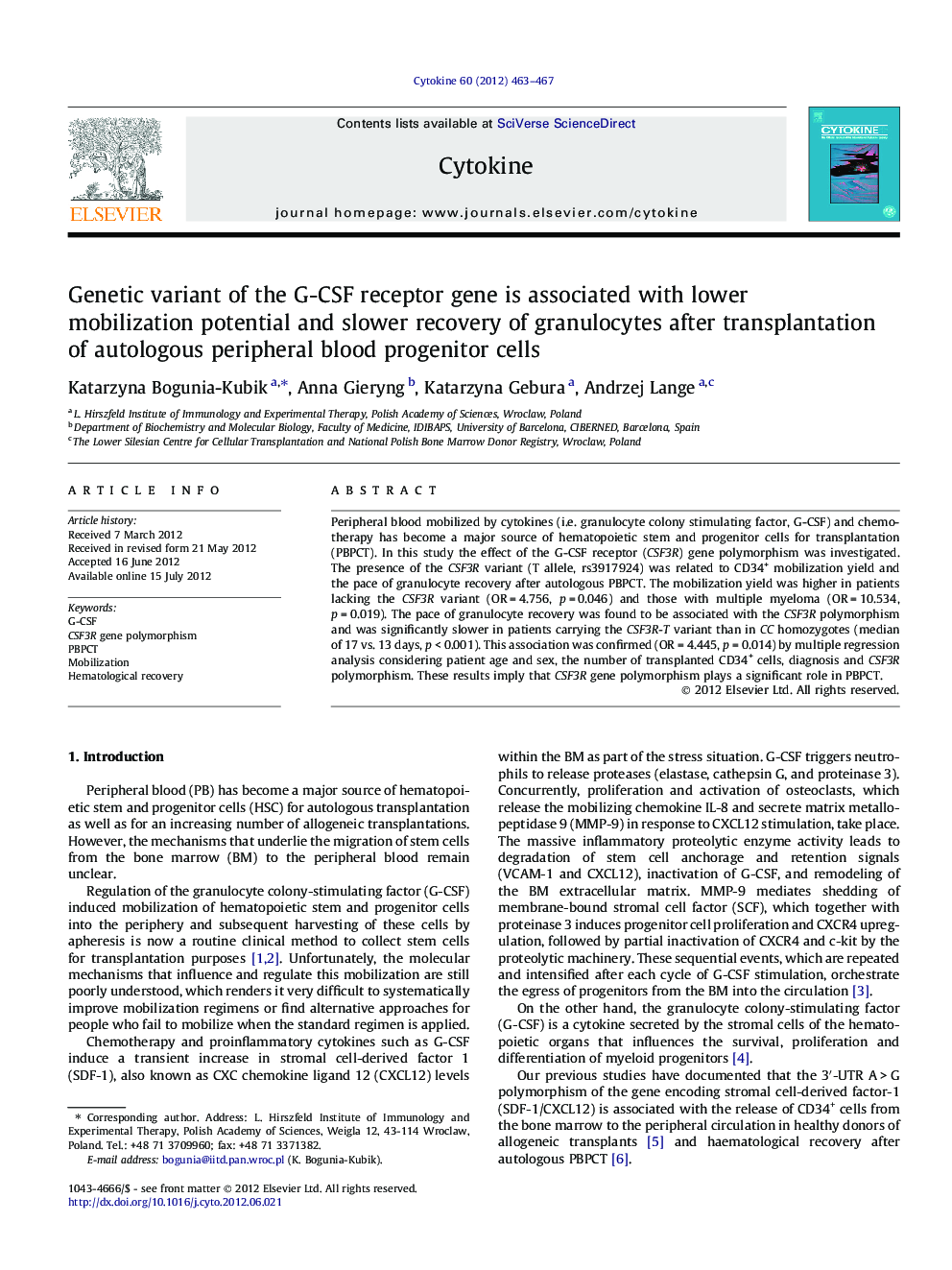| Article ID | Journal | Published Year | Pages | File Type |
|---|---|---|---|---|
| 5897935 | Cytokine | 2012 | 5 Pages |
Peripheral blood mobilized by cytokines (i.e. granulocyte colony stimulating factor, G-CSF) and chemotherapy has become a major source of hematopoietic stem and progenitor cells for transplantation (PBPCT). In this study the effect of the G-CSF receptor (CSF3R) gene polymorphism was investigated. The presence of the CSF3R variant (T allele, rs3917924) was related to CD34+ mobilization yield and the pace of granulocyte recovery after autologous PBPCT. The mobilization yield was higher in patients lacking the CSF3R variant (OR = 4.756, p = 0.046) and those with multiple myeloma (OR = 10.534, p = 0.019). The pace of granulocyte recovery was found to be associated with the CSF3R polymorphism and was significantly slower in patients carrying the CSF3R-T variant than in CC homozygotes (median of 17 vs. 13 days, p < 0.001). This association was confirmed (OR = 4.445, p = 0.014) by multiple regression analysis considering patient age and sex, the number of transplanted CD34+ cells, diagnosis and CSF3R polymorphism. These results imply that CSF3R gene polymorphism plays a significant role in PBPCT.
⺠CSF3R gene polymorphism rs3917924 was investigated in autologous PBPCT recipients. ⺠Mobilization yield and pace of hematological recovery were studied. ⺠Lack of CSF3R variant (T allele) was associated with better mobilization potential. ⺠Slower recovery of granulocytes characterized patients with CSF3R-T allele.
